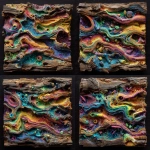Explore the Best AI Image Gallery

Quantum Leaps: Unlocking Creativity Through Quantum Computing
The realm of creativity is poised for a radical transformation, driven by the groundbreaking advancements in quantum computing. This revolutionary technology, harnessing the enigmatic principles of quantum mechanics, promises to unlock unprecedented creative possibilities, blurring the lines between imagination and reality.
While still in its nascent stages, quantum computing has already demonstrated its potential to disrupt various industries, from medicine to finance. Now, it is poised to revolutionize the creative landscape, empowering artists, designers, and innovators with tools that transcend the limitations of classical computing.
Quantum Inspiration: Expanding Creative Horizons
Quantum computings unique ability to process vast amounts of data simultaneously opens up new avenues for creative exploration. Imagine:
- Generative Art on Steroids: Quantum algorithms could generate complex and intricate artwork, pushing the boundaries of artistic expression.
- Music Composition Redefined: Composers could leverage quantum computing to create symphonies with unprecedented harmonies and structures, exploring novel sonic landscapes.
- Immersive Storytelling: Quantum-powered virtual reality experiences could transport audiences to entirely new worlds, blurring the lines between fiction and reality.
The Power of Simulation: Design Reimagined
Quantum simulations hold immense potential for designers across various disciplines. By accurately modeling complex systems at the atomic level, quantum computers can enable:
- Material Innovation: Designers could experiment with novel materials with unprecedented properties, leading to breakthroughs in architecture, fashion, and manufacturing.
- Drug Discovery Acceleration: Quantum simulations could accelerate the design of new drugs and therapies by accurately predicting molecular interactions.
- Sustainable Design Solutions: Quantum computing could optimize resource allocation and minimize environmental impact in the design process.
Ethical Considerations: Navigating Uncharted Territory
As with any powerful technology, quantum computing raises ethical considerations that need careful attention. Some key concerns include:
- Bias and Fairness: Quantum algorithms trained on biased data could perpetuate existing inequalities in the creative industry.
- Intellectual Property: The ownership and protection of creative works generated by quantum algorithms remain a complex issue.
- Accessibility and Equity: Ensuring equitable access to quantum computing resources is crucial to prevent further marginalization of underrepresented communities in the creative field.
Future Trends: A Quantum Leap Forward
The future of creativity is intrinsically linked with the evolution of quantum computing. We can anticipate:
- Increased Democratization: User-friendly quantum tools will empower individuals to explore creative possibilities, fostering a more inclusive and diverse creative ecosystem.
- Interdisciplinary Collaboration: Quantum computing will bridge the gap between different artistic disciplines, leading to innovative hybrid creations.
- Quantum Arts Education: Educational institutions will integrate quantum concepts into creative curricula, nurturing a new generation of quantum-savvy artists and designers.
The integration of quantum computing into the creative industry is not merely a technological advancement; it represents a paradigm shift in how we conceive, create, and experience art. As quantum technology continues to evolve, we can expect a future where creativity knows no bounds, fueled by the infinite possibilities of the quantum realm.



](https://images.ai-img.art/thumbnails/150/914cb18c03c97bdba2f290c0ec1573d5792bf399dbad7f484614764eb31f4c2f.webp)







](https://images.ai-img.art/thumbnails/150/98325fa7102e81df81f1dba6df8df52929b4fa41b058192faf3c77cf94513ff7.webp)
](https://images.ai-img.art/thumbnails/150/09314c003088f7174f747fa65105eca599e0842cf69e637ce4c98ebefd3f50ab.webp)

](https://images.ai-img.art/thumbnails/150/3b65287fef447a6ad61bcb18b5b9d03b6f6f74603ae0e058f81f4b91a3e02f36.webp)


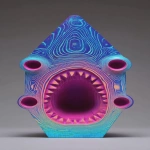
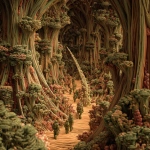



](https://images.ai-img.art/thumbnails/150/ac7218edd6198d49ed8d9853a5890595fc4d2a7a11c2e8a7ee8bcfbc7bfe265e.webp)



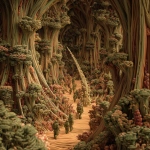

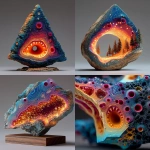






](https://images.ai-img.art/thumbnails/150/a31f622763ce0ecb2e76a907e566b81cfcc171e8d9b8b393f27681be24b6ca91.webp)
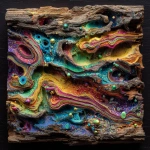
](https://images.ai-img.art/thumbnails/150/769518185300fcbda91b7bbf92b9007bc856379accd52eaf7983f9aec379e88e.webp)






](https://images.ai-img.art/thumbnails/150/7d9de60c58579b921ad140a9e1d752642452d5086b74a27d866e8af04608ed7d.webp)
](https://images.ai-img.art/thumbnails/150/ebc95932b25c17607076ed8d2a4bafc85c3371cf3f2d45c35741505fe3c97de1.webp)


